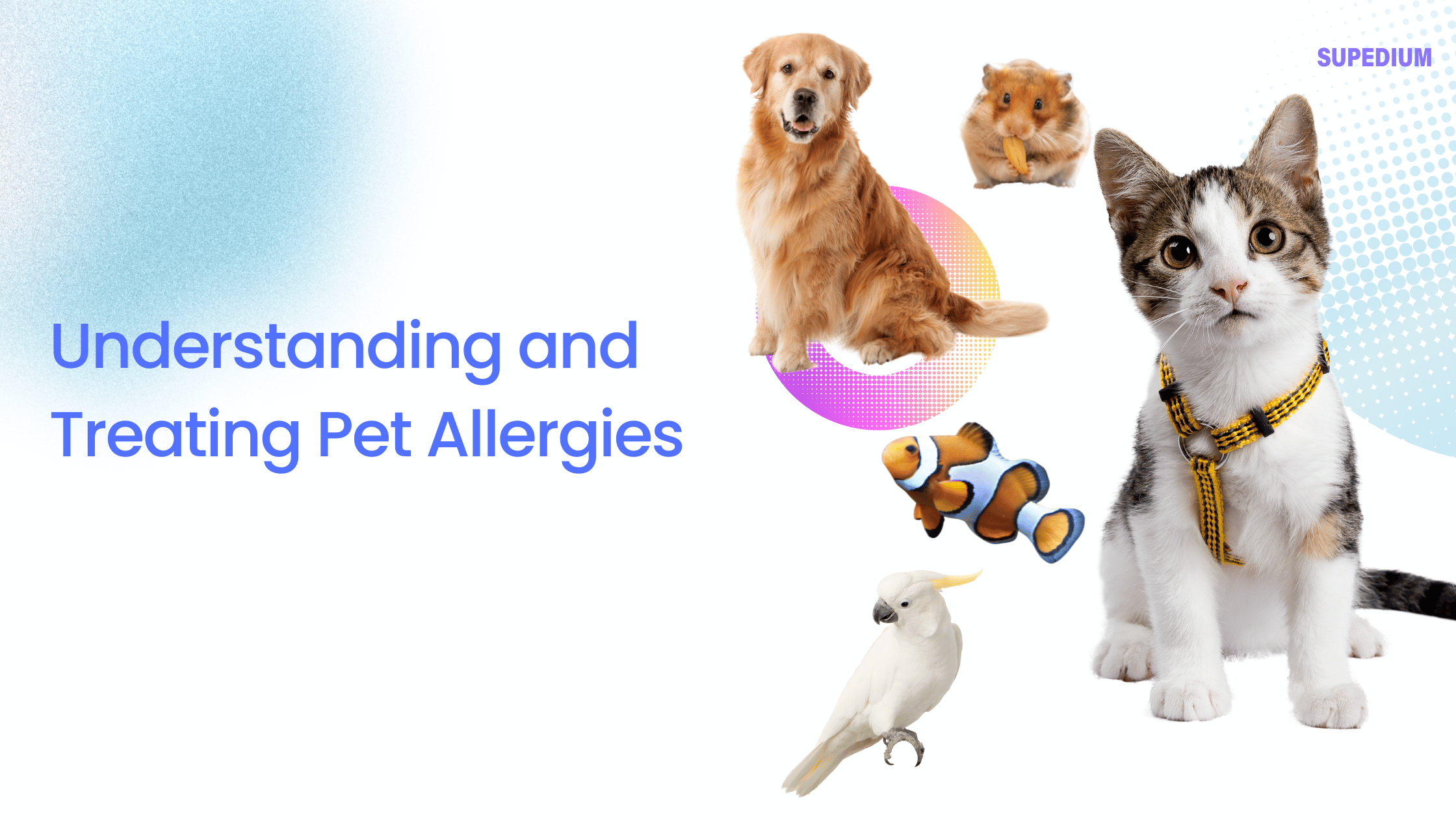Table of Contents
![]()
Pet allergies can be a significant concern for both pet owners and their furry companions. As more households welcome pets into their lives, understanding pet allergies becomes essential for maintaining a harmonious home. This article aims to provide a comprehensive overview of pet allergies, including their causes, symptoms, diagnosis, treatment options, and practical tips for living with them.
What Are Pet Allergies?
Pet allergies are a common issue that arises when the immune system overreacts to proteins found in a pet’s skin, saliva, or urine. These proteins can trigger allergic reactions in sensitive individuals. There are several types of pet allergies:
Environmental Allergies
These include reactions to allergens present in the environment, such as pollen, dust mites, and mold. Pets can carry these allergens into the home, exacerbating allergy symptoms.
Food Allergies
Some pets may develop allergies to specific ingredients in their food, such as beef, chicken, or grains. These allergies can manifest as gastrointestinal issues or skin problems.
Flea Allergies
Flea allergy dermatitis is a condition where a pet is allergic to flea saliva. Even a single flea bite can lead to intense itching and skin irritation.
Common Allergens
The primary allergens associated with pets include pet dander (tiny skin flakes), saliva, and urine. Environmental factors, such as dust and pollen, also contribute to allergic reactions.
Symptoms of Pet Allergies
Pet allergies can affect both humans and pets, leading to a range of uncomfortable symptoms.
In Humans
Common symptoms of pet allergies include:
- Respiratory symptoms: Sneezing, coughing, and wheezing are typical reactions to allergens inhaled from pet dander or saliva.
- Skin reactions: Itchiness, hives, or eczema can develop upon contact with a pet or their bedding.
- Eye symptoms: Red, itchy, and watery eyes are common in those allergic to pets.
In Pets
Pets can also suffer from allergies, exhibiting symptoms such as:
- Skin issues: Itching, redness, or rashes can indicate an allergic reaction.
- Ear infections: Frequent scratching at the ears or shaking of the head may be a sign of allergies.
- Gastrointestinal problems: Vomiting or diarrhea can occur, particularly in pets with food allergies.
Diagnosing Pet Allergies
Diagnosing pet allergies typically involves a combination of veterinary assessment and self-assessment by pet owners.
Veterinary Assessment
A veterinarian will conduct a thorough examination, which includes:
- Medical history: Discussing any prior allergy issues or symptoms observed.
- Physical examination: Checking for visible signs of allergies, such as skin irritations or infections.
- Allergy testing: Skin tests or blood tests can help identify specific allergens affecting the pet.
Self-Assessment for Owners
Pet owners can also play a role in diagnosing allergies by:
- Keeping a symptom diary: Documenting when symptoms occur and any potential triggers can help identify patterns.
- Identifying triggers: Noting which activities or exposures correlate with allergic reactions can aid in diagnosis.
Treatment Options for Pet Allergies
Once diagnosed, various treatment options are available to manage pet allergies effectively.
Environmental Management
Reducing exposure to allergens is crucial. Strategies include:
- Regular cleaning and grooming: Frequent vacuuming and washing pet bedding can help reduce dander buildup.
- Air purification systems: HEPA filters can trap allergens and improve indoor air quality.
- Reducing exposure to allergens: Using hypoallergenic bedding and keeping pets out of certain rooms can minimize reactions.
Medical Treatments
Several medical treatments can alleviate allergy symptoms:
- Antihistamines: Over-the-counter or prescription medications can help reduce sneezing, itching, and other allergy symptoms.
- Corticosteroids: These may be prescribed for more severe symptoms to reduce inflammation and itching.
- Immunotherapy: Allergy shots can help desensitize individuals to specific allergens over time.
Dietary Changes for Food Allergies
If food allergies are diagnosed, a veterinarian may recommend:
- Elimination diets: Gradually removing and reintroducing ingredients to identify the trigger.
- Hypoallergenic pet food: Special diets formulated to avoid common allergens.
Flea Control for Flea Allergies
For pets with flea allergies, effective flea control is essential:
- Preventative treatments: Regular use of flea prevention products can help keep infestations at bay.
- Home cleaning practices: Vacuuming and washing pet bedding regularly can reduce flea populations in the home.
Living with Pet Allergies
For those affected by pet allergies, adopting specific strategies can improve quality of life.
Tips for Pet Owners with Allergies
Choosing the right pet can make a difference:
- Choosing the right pet: Consider hypoallergenic breeds that produce fewer allergens.
- Training pets: Teaching pets to minimize dander spread, such as not allowing them on beds or couches, can help.
Lifestyle Changes
Adjusting daily routines can also alleviate symptoms:
- Creating pet-free zones: Designating areas of the home, such as bedrooms, as pet-free can provide relief.
- Adjusting cleaning routines: Regular cleaning and use of air purifiers can reduce allergen exposure.
- Seeking professional help: Consulting with an allergist or veterinarian can provide tailored advice and treatment options.
Conclusion
Understanding pet allergies is crucial for pet owners who want to maintain a healthy and happy environment for themselves and their pets. With proper diagnosis and treatment, it is possible to manage symptoms effectively. By implementing practical strategies, individuals can enjoy the companionship of their pets while minimizing allergic reactions.
Share This





Be the first to comment